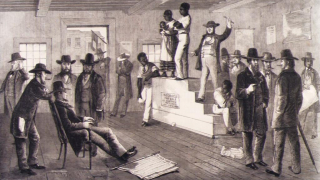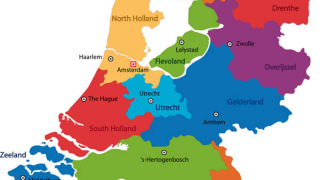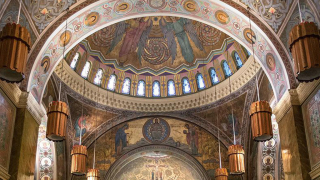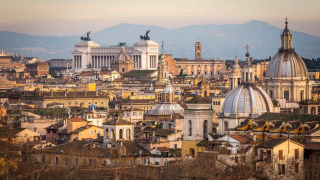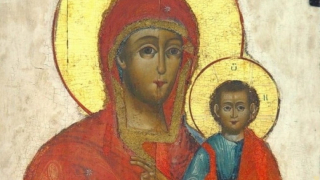‘In Heaven, There Is a Kingdom; in Hell There Is Democracy.’
24.04.2019
These are the inspired words of a holy Orthodox priest who reposed in Russia in 1908, St John of Kronstadt. In them, one will find a general rule for politics: Monarchy is the best form of government for mankind, while democratic forms are the worst. This is contrary to the wisdom of the age, which reverses the rule. Nevertheless, this does not nullify the truth of the former; it only shows how deeply into apostasy and rebellion the modern world has fallen.
To illustrate this, let us look at what some of the most unsavory cabals of men have said about monarchy and democracy over the years.
The Rosicrucians:
The three major objects of the Fraternity are:
1. The abolition of all monarchical forms of government and the substitution there-for of the rulership of the philosophic elect. The present democracies are the direct outgrowth of Rosicrucian efforts to liberate the masses from the domination of despotism. . . . . The American War for Independence represents their first great political experiment . . . .
--Manly P. Hall, The Secret Teachings of All Ages: Reader’s Edition, New York, Tarcher-Penguin, 2003, p. 463.
The Freemasons:
The main targets of the Masons were: the hierarchical principle, respect for tradition, the Church and the Monarchy. The Masons did not originate the attack on these – the roots of anti-authoritarianism in both Church and State go back at least to the eleventh-century Papacy. What they did was to use an already existing sceptical and rationalist climate of opinion to intensify and give direction to the revolutionary movement, “the mystery of iniquity”.
--Vladimir Moss, An Essay in Universal History, Vol. II: The Age of Reason, Part 2, 2018, p. 116, http://orthodoxchristianbooks.com/books/downloads.php?book_id=756
The Illuminati:
A concise five-point summary of the beliefs of Illuminism was outlined by Nesta Webster:
1. Abolition of Monarchy and all ordered Government.
. . .
--Terry Melanson, Perfectibilists, Walterville, Ore., Trine Day, 2009, p. 175
And just for good measure, we will include a statement by a modern globalist, Jacques Attali, praising the fall of monarchical power to the forces of democracy:
In 1689 a political bombshell bursts over London. The country’s ruling monarchs, Mary and William of Orange . . . grant Parliament, freely elected by the country’s middle classes, the right to look into public affairs. Thus, after its sketchy Dutch beginnings, the birth certificate of modern democracy is officially promulgated. Parliament enacts laws, guarantees individual freedoms, and authorizes the king to raise troops and make war. England is the first market democracy.
--A Brief History of the Future, Jeremy Leggatt trans., New York, Arcade, 2009, p. 62.
Those in the Exceptional States of America who may be feeling a twinge of guilt at their never-ending celebration of the overthrow of King George III and their rubbing ideological shoulders with the likes of Messrs Attali and Hall will attempt to defend themselves by saying something like, ‘Yes, we rejected a king’s rule, but we also did not succumb to democracy. We have charted the middle way: neither the despotism of a king nor the chaos of a mob for us. We have established a constitutional republic instead, the best of all forms of government.’
But the Orthodox priest-monk of Platina, California, Blessed Father Seraphim Rose, fortook them and their objection well in advance. Here he is quoting a staunch defender of traditional ways, the Spanish nobleman Donoso Cortés (1809-53):
“The liberal school,” he said, “...is placed between two seas, whose constantly advancing waves will finally overwhelm it, between socialism and Catholicism.... It cannot admit the constituent sovereignty of the people without becoming democratic, socialistic, and atheistic, nor admit the actual sovereignty of God without becoming monarchical and Catholic....”xxxix
“This school is only dominant when society is threatened with dissolution, and the moment of its authority is that transitory and fugitive one, in which the world stands doubting between Barabbas and Jesus, and hesitates between a dogmatical affirmation and a supreme negation. At such a time society willingly allows itself to be governed by a school which never affirms nor denies, [italics in original] but is always making distinctions.... xl“ Such periods of agonizing doubt can never last any great length of time. Man was born to act, and will resolutely declare either for Barabbas or Jesus and overturn all that the sophists have attempted to establish....”
--Orthodox Survival Course, ‘Lecture 8: Meaning of Revolution’, p. 129, http://tinyurl.com/h8uqu66
The republican form, as the American exceptionalists assert, is a sort of middle way, but not the kind they think it is. To them it is the solid ground of the golden mean betwixt the one and the many. In actuality, as the quote just above makes clear, it is inherently unstable, like a beam balanced on a point that will soon fall one way or the other, either back to the God-ordained order of kingship or the Satanic-inspired order of democracy.
Again, the American exceptionalists believe that constitutional republics are the highest expression of Christian political principles. And once again they could not be further from the truth, as this kind of government is very friendly to the forces of the devil:
. . . About his preceptor, Fr. Seraphim wrote: “Archbishop Averky’s view of the contemporary world was sober, precise, and entirely inspired by the Sacred Scripture and Holy Fathers of the Church: He taught that we live in the age of the Apostasy, the falling away from true Christianity, when the ‘mystery of iniquity’ has entered its final stage of preparation for the ‘man of sin,’ Antichrist.”
Like Fr. Seraphim, Archbishop Averky had made an extensive study of the philosophical roots of the apostasy. As Fr. Seraphim noted: “Archbishop Averky traced the development of this Apostasy in particular from the time of the schism of the Church of Rome (1054), through the era of Humanism, the Renaissance and Reformation, the French Revolution, nineteenth-century materialism and Communism, culminating in the Russian Revolution of 1917, which removed the last great barrier to the working of the mystery of iniquity and the coming of Antichrist.”
As we have seen, Archbishop Averky was in the direct spiritual line of the nineteenth-century Russian prophet St. Theophan the Recluse, whose prophecies—like those of his contemporary St. Ignatius Brianchaninov—he saw unmistakably being fulfilled around him. St. Theophan had prophesied the fall of the Orthodox Tsar and its terrible aftermath, which he said must come as a punishment for the faithlessness, freethinking, amorality, and blasphemy among his countrymen. “When royal authority falls,” Theophan had said, “and the people everywhere institute self-government (republics, democracies), then there will be room for the Antichrist to act. It will not be hard for Satan to prepare voices in favor of renouncing Christ, as experience showed during the French Revolution. There will be no one to pronounce the authoritative veto. And so when such regimes, suitable for disclosing the Antichrist’s aspirations, are instituted everywhere, then the Antichrist will appear.”
This was exactly what Archbishop Averky saw happening in the contemporary world. “The fundamental task of the servants of the coming Antichrist,” he wrote, “is to destroy the old world with its former concepts and ‘prejudices,’ in order to build in its place a new world suitable for receiving its approaching ‘new owner,’ who will take the place of Christ for people and give them on earth that which Christ did not give them.” In the words of St. Ignatius Brianchaninov, “The Antichrist will be the logical, just, and natural result of the general moral and spiritual direction of mankind.”
--Hieromonk Damascene, Father Seraphim Rose: His Life and Works, 3rd ed., Platina, Ca.: St. Herman of Alaska Brotherhood, 2010, pgs. 734-5.
One of the greatest saints of the 20th century, St John Maximovitch (+1966), was also plain-spoken about this. The quintessential form of Christian government - the exact opposite, that is, of the evil government of Antichrist - is the monarchical form:
First of all, the forces preparing for his coming fight against lawful monarchical rule. The holy Apostle Paul says that the Antichrist cannot appear until "the one who restraineth" is put aside. John Chrysostom explains that the "one who restraineth" refers to a lawful, pious regime. Such a power struggles with evil. "The mystery" working in the world does not want this, does not want the struggle against evil by the power of a pious ruler — quite the opposite. It wants the rule of lawlessness, and when it achieves this, nothing more will stop the appearance of the Antichrist.
--‘Cheese-fare Sunday, 1956, The Sunday of the Dread Judgment’, http://www.holytrinitymission.org/books/english/sermons_john_maximovich.htm#_Toc100019506
This is not a new theory of the Church. The Holy Fathers of the Orthodox Church have always upheld the Christian Empire with a king at its head as the ideal of Christian government:
Even then, at the beginning of the Principate, Rome was providing universal peace, whose true significance and true fullness was being revealed in Christ, born at Bethlehem. The idea is expressed in the second century by Melito of Sardis, but also by Origen, whose influence upon the later patristic tradition was overwhelming:
Jesus was born during the reign of Augustus, the one who reduced to uniformity, so to speak, the many kingdoms on earth so that he had a simple empire. It would have hindered Jesus’ teaching from being spread through the whole world if there had been many kingdoms . . . everyone would have been compelled to fight in defense of their own country.
Origen’s view of Augustus as fulfilling a providential mission, is assumed by an impressive consensus patrum of the East and of the West, including not only Eusebius of Caesarea, but also John Chrysostom and Gregory of Nazianzus, as well as Prudentius, Ambrose, Jerome and Orosius. In Byzantium, it was included as the central idea in a hymn sung on Christmas Day.
In the light of this tradition, Constantine was not a revolutionary, but rather the first emperor to realize the true meaning of Roman kingship, which others had already exercised before him: the Pax romana was not the creation of Augustus, but of Christ.
--Fr John Meyendorff, Imperial Unity and Christian Divisions, Crestwood, New York, St Vladimir’s Seminary Press, 1989, pgs. 29-30.
From the conversion of Equal to the Apostles St Constantine the Great in 312 A. D. to the abdication of the holy martyr Tsar Nicholas II in 1917, the Orthodox Roman Empire made Christian politics a reality in the world. The constitutional republic is therefore not the fulfilment of all political righteousness but a perversion of it, an enabler of great mischief and evil.
Can representative and/or democratic institutions exist in a kingdom at all, then? Yes; and they often have. But the king must remain the final authority, the final court of appeal in political disputes. Otherwise, it is a kingdom in name only.
Those in the States who truly desire Christian politics in their lands can do two things relating to this subject. They can begin working for the establishment of an anointed Christian king in their own region of the present union: Spanish Southwest, Great Plains, New England, etc.; or in their own State. And they can pray for the restoration of the Orthodox Tsar in Russia, whom holy men like St John of Kronstadt tell us will return if the repentance of Russians and the rest of the world is sincere. It is then that they will begin to see progress in the areas (morals, culture, etc.) that trouble them so deeply now, the deterioration of which has resulted at least in part from accepting false teachings about the connections between God, the Church, and government.






